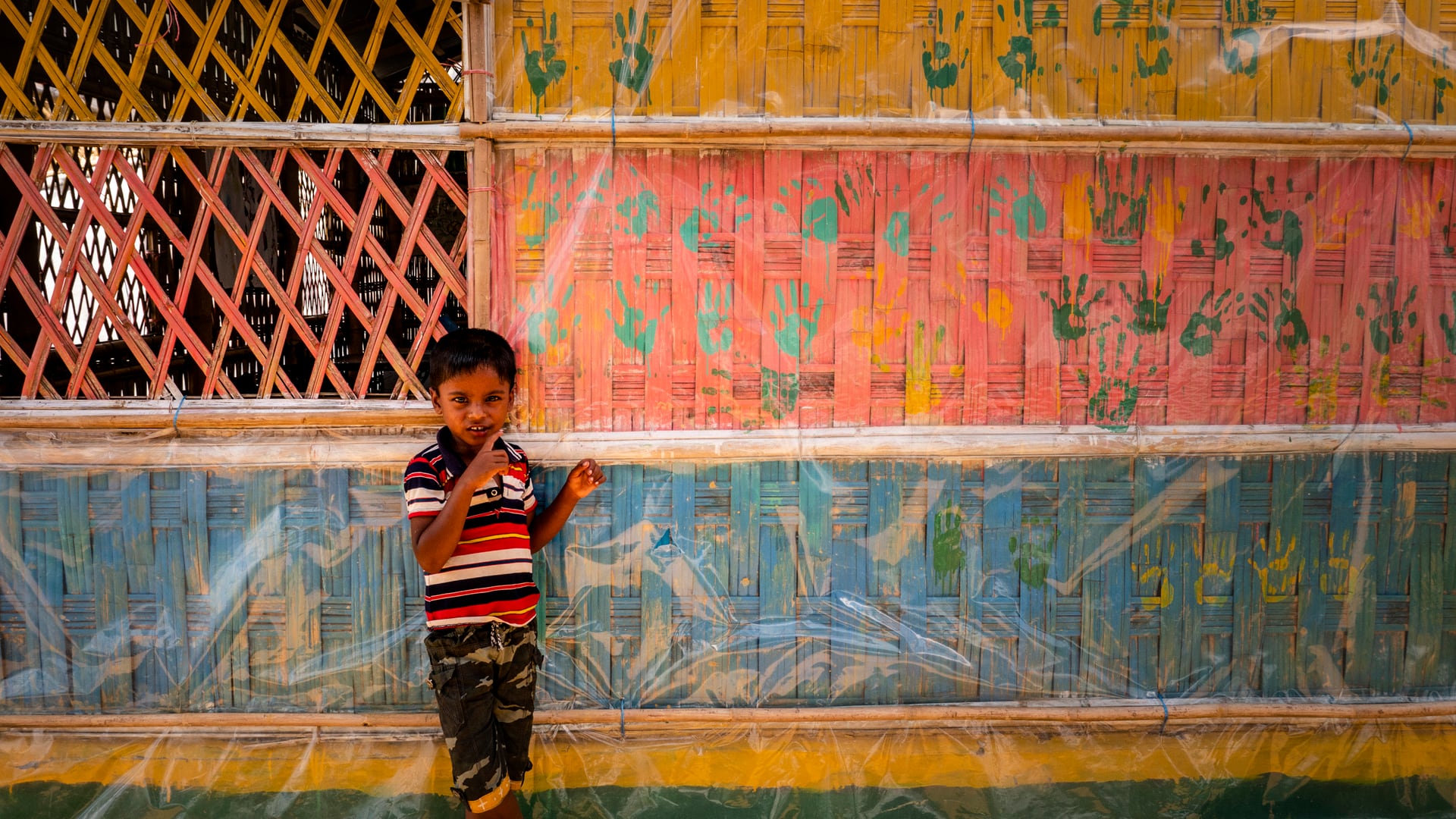In August 2017, over 700,000 Rohingya escaped from violence in their Myanmar villages and found shelter in Cox’s Bazar, Bangladesh. Tdh sent an emergency aid team to provide health care, child protection, WASH and social cohesion services.

Our impact
200'661
consultations delivered at our two primary healthcare centres in 2022
10'187
children received psychosocial support activities in 2022
17'693
people got better access to safe water, sanitation and hygiene services in 2022
The Rohingya families living in makeshift camps in the Cox's Bazar region of Bangladesh face extremely difficult conditions. Many have experienced trauma and are uncertain about their future.
Our emergency team works tirelessly to save as many lives as possible. Tdh has been active in Bangladesh for more than 40 years. We are currently assisting Rohingya refugees in the Cox’s Bazar camps with maternal and child health services, hygiene and sanitation practices, and emotional support for children who have been significantly impacted by the conflict in hard-to-reach locations.
Mother and child health
Tdh offers vital healthcare to pregnant women, mothers and children in both the refugee camps and the surrounding host communities. This includes consultations and medical care in primary health centres and hospital deliveries with qualified health professionals. Moreover, Tdh deploys Electronic Medical Records (EMR) systems to facilitate recording patient data. The aim is to improve healthcare services and expand the implementation of EMR systems, while working with other NGOs and INGOs to improve the overall capacity to implement these systems.

Water, sanitation and hygiene
Our WASH programme aims to improve access to high-quality WASH services, while making facilities more inclusive, by empowering and raising awareness within the community. Tdh focuses on waste management and hygiene promotion. We are working closely with the refugee community to reinforce their hygiene practices by promoting positive messages about hygiene. Tdh also distributes hygiene kits and provides support for menstrual hygiene management. Tdh's work helps to enhance sanitation, waste management and hygiene practices among the beneficiaries in the Rohingya and host communities.
Child Protection
Tdh trains staff, volunteers, community members and young people to increase their knowledge and capacity to protect children and young people. In our sixteen child-friendly spaces in seven refugee camps, we offer psychosocial support activities that promote emotional, social and resilience-building. Our aim is to make vulnerable children, teenagers, families, and communities safe through child protection programming. Specifically, we target those affected by the Rohingya refugee crisis and climate induced displacement. Tdh achieves this goal by using community-based activities, psychosocial support, case management, and strengthening of formal systems.

Social cohesion
Tdh carries out initiatives that encourage peaceful coexistence and conflict resolution within communities. These initiatives include training beneficiaries in conflict resolution techniques and mobilising community representatives as agents of peaceful conflict resolution. Additionally, Tdh supports the creation of forums and practical procedures to ensure that conflict resolution and community ownership are sustainable. Furthermore, Tdh involves community members, especially women, in activities that promote social unity and tackles different social problems. Activities to promote social cohesion increase the sense of acceptance between refugee communities and host communities.
Supported by

ECHO
The European Commission's Humanitarian Aid department (ECHO) funds relief operations for victims of natural disasters and conflicts outside the European Union.

